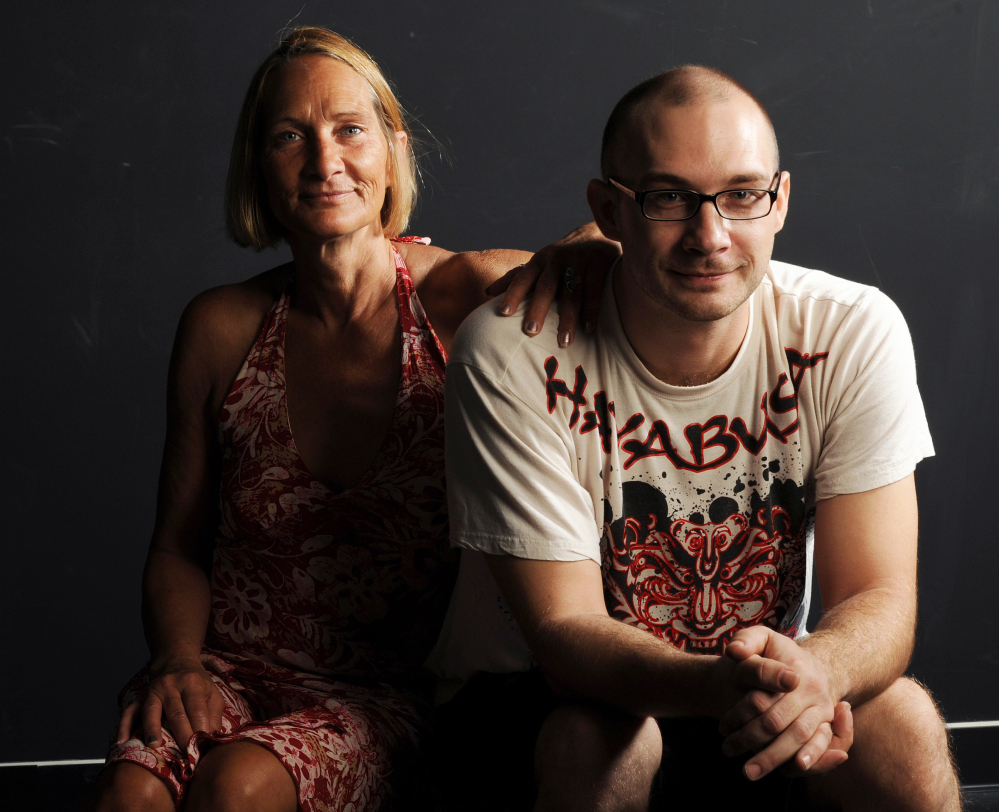FALMOUTH, Mass. — Is addiction inherited or learned?
It’s a question that has plagued the relatives of Josiah Campbell. “Joey” died of a heroin overdose Dec. 18 in Falmouth at the age of 25.
His mother, Cindy Campbell, of Falmouth, said her great-grandfather and grandfather both suffered with alcoholism. Her mother never drank. So Cindy didn’t see much drug or alcohol use in the home as a little girl and no one ever talked about it.
Yet it seemed to live within her.
At 10, she would scrape opium-based paregoric powder from old medicine bottles.
By the time Cindy Campbell gave birth to her oldest son, Brenton, she was using heroin. So was her husband, John Campbell.
Her husband died when Josiah was 2. And though she had been clean and sober for 10 years while raising her children, her sons saw how her eventual return to drugs was destroying her.
At 16, Brenton held up an elephant figurine that Cindy had collected, and with tears streaming down his face, he asked, “‘Mom, do you care about this?”‘ Cindy recalled. “I said, ‘Yes.’
“‘Then why don’t you care about us?’ he asked. I said, ‘I do.’ Then I went upstairs to get high.”
“Those are the memories I had when I was trying to get clean,” Cindy said. “They made me feel so much guilt and shame, I couldn’t stand the feelings. When you feel so much fear, guilt and shame, you cannot listen in a (12-step) meeting.”
“I know my mother loved us,” said Brenton, 31, and now living in St. Petersburg, Florida. “But it’s a mental illness. You can’t stop schizophrenia by loving your kids. If it overpowers a mother’s instincts, then what can the criminal justice system do?”
Brenton and Josiah both became addicted to heroin as well.
When Brenton thought for sure it would kill him, he called his cousins in Oklahoma.
In “cow country” there would be no heroin, he said. And it worked.
Josiah wanted help, Cindy said. But one final dose at his grandmother’s home took away his chances forever.
Cindy was 55 when Josiah died. She had been clean for 18 months.
Having been to at least 30 detox hospitals in her life, she didn’t even think of turning to heroin to numb the grief.
“I had used to the point where there was nothing left for me,” said Cindy, who attends 12-step meetings daily. “I had learned that addiction is a lie.”
Cindy and Brenton Campbell admit they don’t know all the answers. Two different upbringings but similar genetics produced the same result: addicted adults.
But one difference in the generations has been key.
Cindy said shame weakened her power to get clean.
“It was easier for me because I didn’t have that shame or guilt,” Brenton said.
“That’s why now I refuse to be ashamed of my son or my own addiction,” Cindy said. “Until people stop shaming and stop making it a moral issue, it won’t get better. It’s not bad trying to get good. It’s sick trying to get better.”
“I don’t believe God let me survive because I have a purpose, but there was no purpose for my son,” she said. “If you take a lot of addicts and line them up across a highway, some will get picked off and some won’t, and there will be a lot of collateral damage.”
Send questions/comments to the editors.



Success. Please wait for the page to reload. If the page does not reload within 5 seconds, please refresh the page.
Enter your email and password to access comments.
Hi, to comment on stories you must . This profile is in addition to your subscription and website login.
Already have a commenting profile? .
Invalid username/password.
Please check your email to confirm and complete your registration.
Only subscribers are eligible to post comments. Please subscribe or login first for digital access. Here’s why.
Use the form below to reset your password. When you've submitted your account email, we will send an email with a reset code.